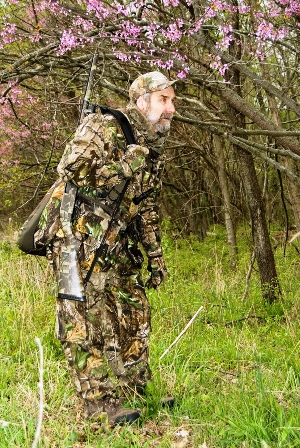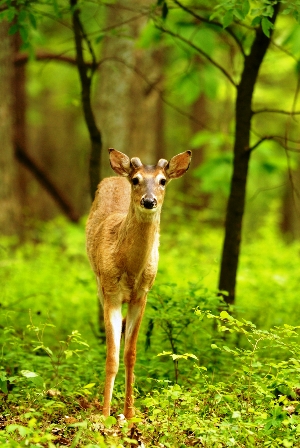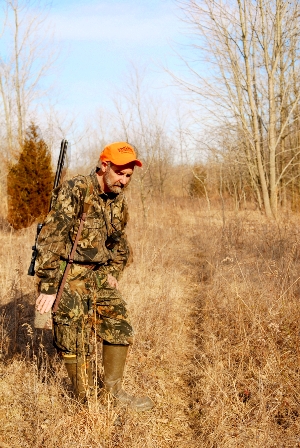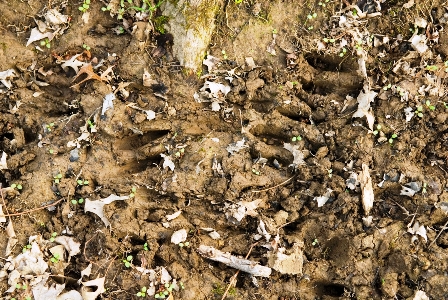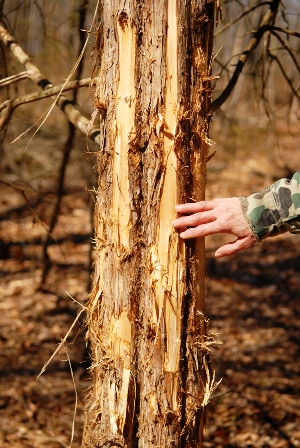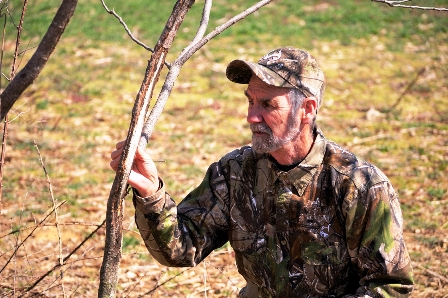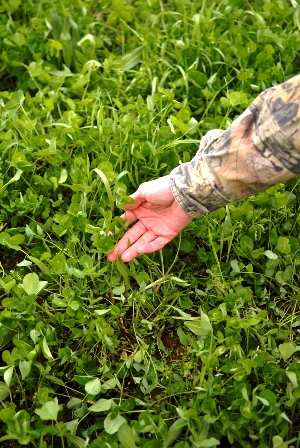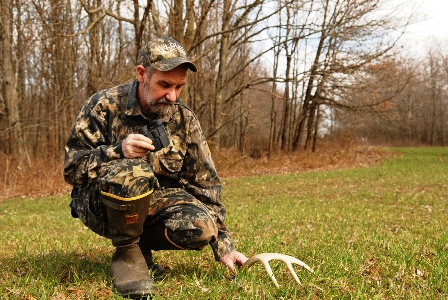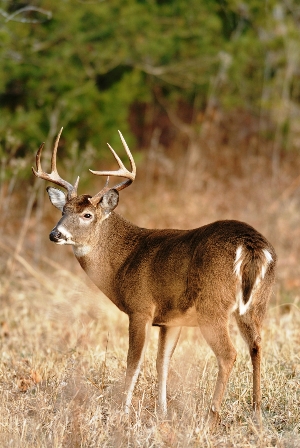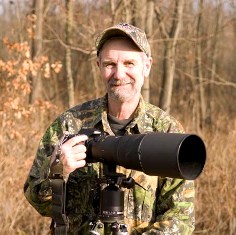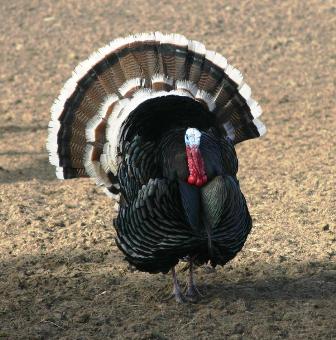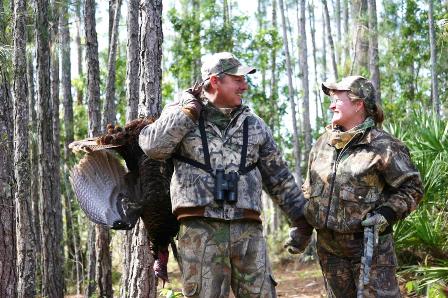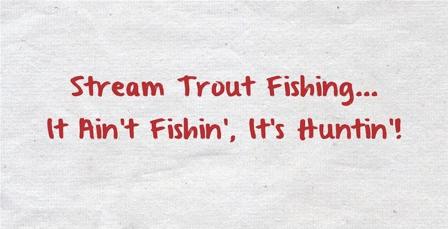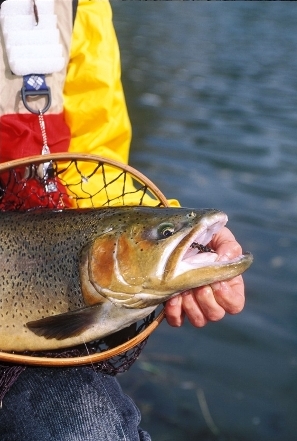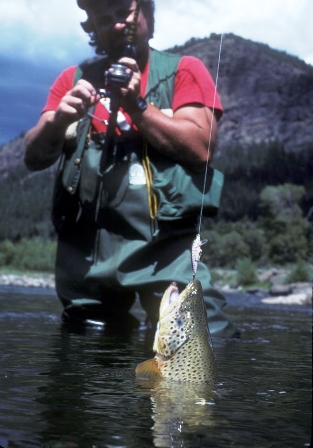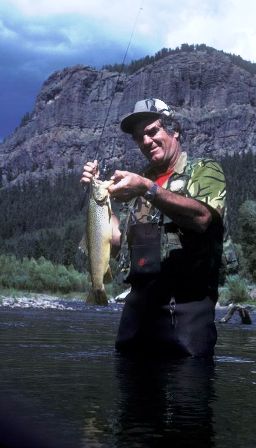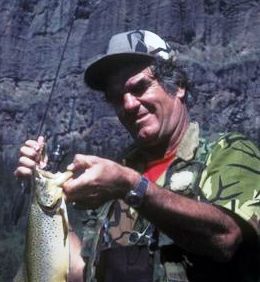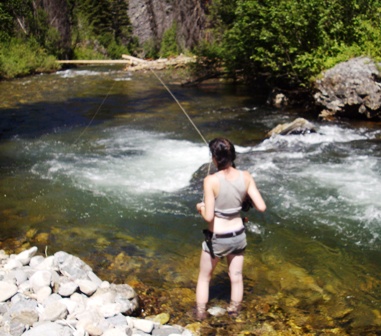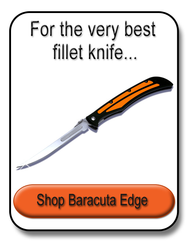By Judd Cooney
Before next season, learn how to nail that
gobbler that comes in on your weak side.
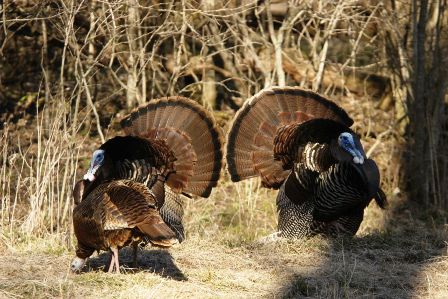
Does that bird on the right have a double beard? Being able to shoot opposite-handed might get you the better trophy.
We’d been watching the big Iowa longbeard strutting for half an hour 150 yards down the roadway traversing the ridgetop between two large tracts of dense timber. He was “spittin’ and drummin'” for the two hens that were loitering around him. Although he gobbled at every sound I coaxed out of my slate and diaphragm calls, he showed no inclination to head our way.
My two jakes and a hen decoy were positioned 20 yards to our left front to make it easy for my right-handed client to get into shooting position for the most likely approach of the gobbler. An ideal set up. Ha!
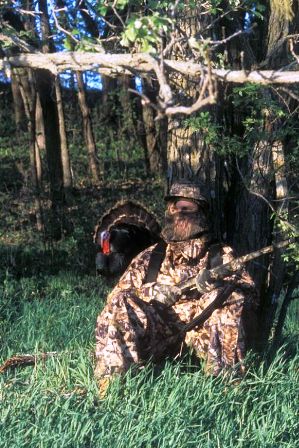
An almost impossible situation. If the gobbler comes past you but turns to his right, you’ll have no chance unless you can shoot left-handed.
Expect the Unexpected
I worked the henned up, vocal gobbler for over an hour, but not being the trusting type when it comes to tom turkeys, I also kept an eye on the edge of the timber along the harvested corn field behind us. Luckily, I caught sight of another heavy-bearded bird while still 75 yards out, moving warily and silently toward us but staying just inside the edge of the timber. Occasionally he’d break into a full strut, but he never made a sound as he closed the distance.
By the time he got to a small clearing just inside the edge of the timber 30 yards away, and once again puffed up into a full strut, my client had eased his shotgun to his LEFT shoulder and was ready. My whispered words, “Take him when you’re ready,” had barely cleared my face mask when the turkey went down in a cloud of feathers and oak leaves.
Two days earlier my hunting partner had never fired a shotgun left-handed. However after umpteen situations where a contrary gobbler approached a calling set up from the backdoor, offside position, where it was almost impossible for a hunter to turn and shoot effectively, I decided to start changing the odds.
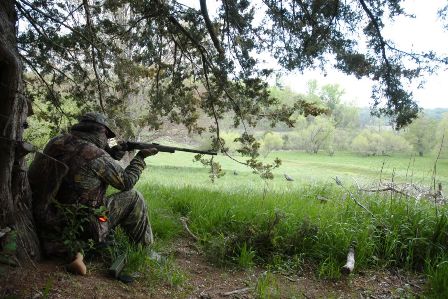
It takes practice, but surprisingly little of it, to make you as comfortable shooting left-handed as right-handed.
My Own Lessons
Early in my hunting career my dad and I used to head to northern Minnesota, duck hunting each fall. My dad’s good friend, hunting lodge owner and master duck hunter, Clarence Allen and I would often float the local rivers in a flat bottomed duck boat, jump shooting ducks from the rice beds growing out from the banks of the rivers. Clarence was left-handed and I was right-handed, so he’d take the jumped ducks from the right side rice beds and I shot at the ones jumped from on the left-side of the river. As a ten year old I thought a lot more rice beds were on the right side than the left, because Clarence seemed to get a lot more shooting.
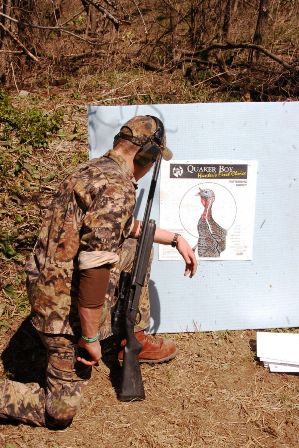
Shoot at a real turkey target – that’s the only way you’ll know you’re holding the center of your pattern on the turkey’s head and neck.
I decided to remedy that perceived inequity and over the course of a summer, I taught myself to shoot left-handed. Since those early years, being an ambidextrous shooter has been the downfall of many turkeys, waterfowl, predators and even several big game critters that appeared on my offhand side, where least expected.
Outwit Unpredictable Turkeys
As an addicted turkey hunter as well as outfitter and guide for turkey hunters, I find nothing more frustrating than successfully seducing a longbeard with my calling only to have him upset my best laid plans by approaching from the side or rear on the offhand side. Most of the time excessive movement or trying a shot from an awkward shooting position allows the bird to escape unscathed – and a bit wiser.
Today when a turkey hunter shows up in my Iowa hunting camp, one of my first questions is: “Can you shoot both right and left-handed?” After over twenty years of guiding turkey hunters I don’t recall more than a couple hunters who allowed they could shoot both ways.
Practice Four Ways
After discussing the philosophy behind my question, I get the turkey hunter on the range for some serious offside shooting practice.
- Start with light trap loads rather than shoulder bruising turkey loads to get used to weak side gun positioning.
- Concentrate on non-dominant eye sight picture and wrong hand trigger squeeze.
- Fire your shotgun offhand, from the opposite knee or a mono-pod or bi-pod to simulate likely shooting situations.
- It takes only a few shots to get proficient and confident enough to be ready for a sneaky offside gobbler.
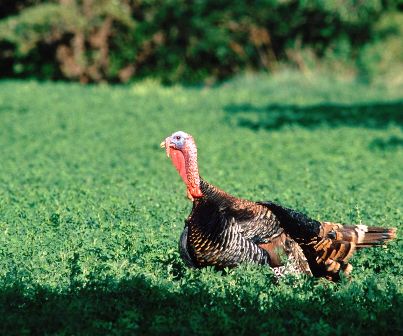
If he’s at your extreme right, is he a sitting duck, er, turkey? Not unless you’ve practiced shooting left-handed.
Most hunters are amazed at the results of a little offside practice and become hooked on this effective tactic.
The hunter in the opening scenario had taken a number of turkeys in various states and didn’t figure he really needed to learn to shoot left-handed to kill his Iowa and Nebraska birds. He could have been right, but curiosity got the best of him. He quickly mastered left-hand shooting with half dozen shots from various positions and actually enjoyed the challenge.
When he killed his Iowa bird left-handed, he was as ecstatic as if it had been his first gobbler. He also purposely shot his Nebraska Merriam’s turkey left-handed just to extend the challenge and prove the first bird wasn’t a fluke. As he left camp for another turkey hunt in the Dakotas, he emphatically stated, “I’ll never take another hunter after gobblers again, especially neophytes and young hunters, until they get some lessons on switch shooting for those contrary offside gobblers!”
***
About Judd Cooney
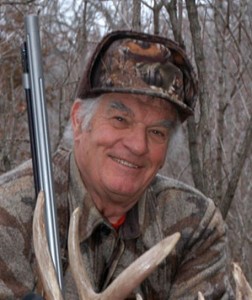 For the past 30 years Judd has been writing and photographing full time in addition to running his guiding and outfitting operation, spending 18-20 hours a day trying to avoid working an 8-5 job. He says, “I wouldn’t change it for the world!” He has articles or photos in many of the outdoor magazines every month, covering bowhunting, muzzleloader hunting, big game, small game and predator hunting, plus turkey, waterfowl and upland game hunting. He can be reached through his website, www.JuddCooney.com.
For the past 30 years Judd has been writing and photographing full time in addition to running his guiding and outfitting operation, spending 18-20 hours a day trying to avoid working an 8-5 job. He says, “I wouldn’t change it for the world!” He has articles or photos in many of the outdoor magazines every month, covering bowhunting, muzzleloader hunting, big game, small game and predator hunting, plus turkey, waterfowl and upland game hunting. He can be reached through his website, www.JuddCooney.com.
Click here to read more great articles on turkey hunting.
[hs_action id=”7201″]
2,863 total views, no views today


